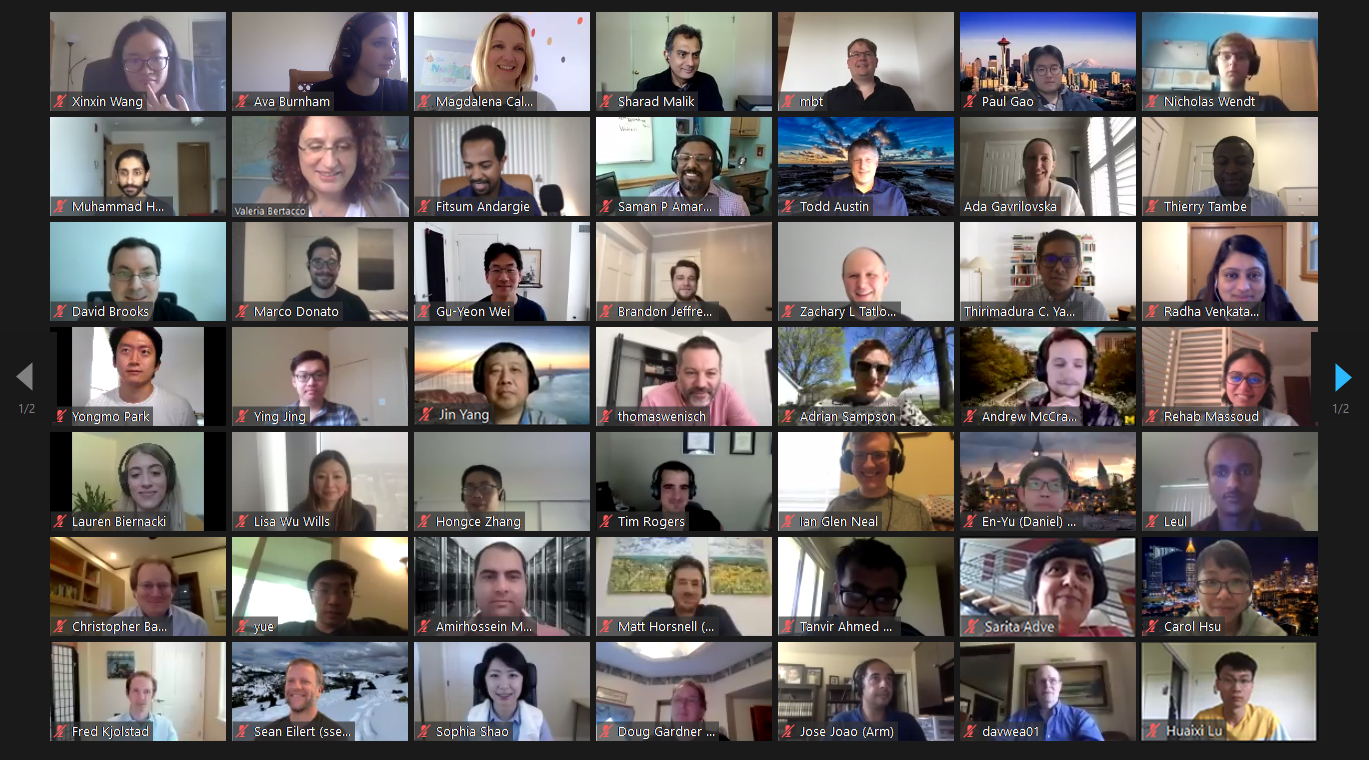ADA Center holds 2020 symposium with virtual attendance, highlighting new research into computer design
The symposium highlighted new developments in computer architecture, and included a session on how the center's research can contribute to limiting the impact of pandemics.

 Enlarge
Enlarge
Computer architects, VLSI researchers, and compiler experts affiliated with the Applications Driving Architectures (ADA) Center gathered for the center’s annual symposium from May 18 to May 21, 2020. Because of the coronavirus outbreak, the symposium was held as a virtual event.
Launched in 2018 with $32M in funding and based at the University of Michigan, the ADA center is driving the development of a transformative, “plug-and-play” ecosystem to encourage a flood of fresh ideas in computing frontiers such as autonomous control, augmented reality and machine-learning. Its goal is to democratize computing system development in order to make it possible for anyone with motivation and a good idea to build novel, high-performance computing systems. The center is led by U-M Thurnau Professor Valeria Bertacco.
The 2020 symposium involved the participation of over 150 scientists from 10 academic institutions and 13 semiconductor companies, who reported on new solutions and discoveries, as well as research trajectories within the center and in the industry. Projects were introduced and demoed under the thrusts of Deft Development, Algorithm-Driven Architectures, Technology-Driven Systems, and Benchmarks and Metrics, with discussions on virtual reality benchmarks, fast prototyping frameworks, hardware accelerator platforms, compiler enhancements, domain-specific programming languages, and upcoming machine learning applications.
I hope to see these solutions unlock a new wave of radical innovations in the computer hardware space.
Valeria Bertacco, ADA Center Director
“The electronics industry has been facing design-complexity challenges and device-technology limitations that have been slowing down its advancement,” said Bertacco. “I am very excited about the research that is being developed in the ADA Center to mitigate these roadblocks. I hope to see these solutions unlock a new wave of radical innovations in the computer hardware space.”
During the online event, Bertacco hosted a special event called “ADA Center vs. COVID-19,” where she detailed how the center and its research has been moving ahead full-speed, despite the pandemic. The session also discussed how the center’s research can contribute to limiting the impact of this pandemic and future ones, in particular through the development of faster genomics-computation capabilities that are necessary for fast infection-diagnostic testing, and by providing fast computational solutions for dynamic graphs, which are the underpinning of contact-tracing algorithms.
Despite the challenges that the coronavirus pandemic has presented, the center’s core administrative team designed a novel format for the online event, which was well received by academic, government, and industry attendees. Keynote presentations were broadcasted live on Zoom and WebEx simultaneously. Students pre-recorded their demos and project presentations, which were shared with participants ahead of the symposium’s opening. During the event, student project demos were presented in 26 concurrent Zoom rooms, allowing participants to wander freely through the virtual demo space. The evening social events moved online to TheOnlineTown, a virtual meeting space that allowed participants to explore a virtual New York City Times Square. The virtual meeting space showed the video and sound of other attendees when their avatars were nearby, allowing conversations between any number of participants to take place simultaneously.
In addition to the symposium, the ADA center holds workshops, brainstorming sessions and student hackathons, to encourage the exchange of ideas among all members of its community. More information is available at the center’s website.